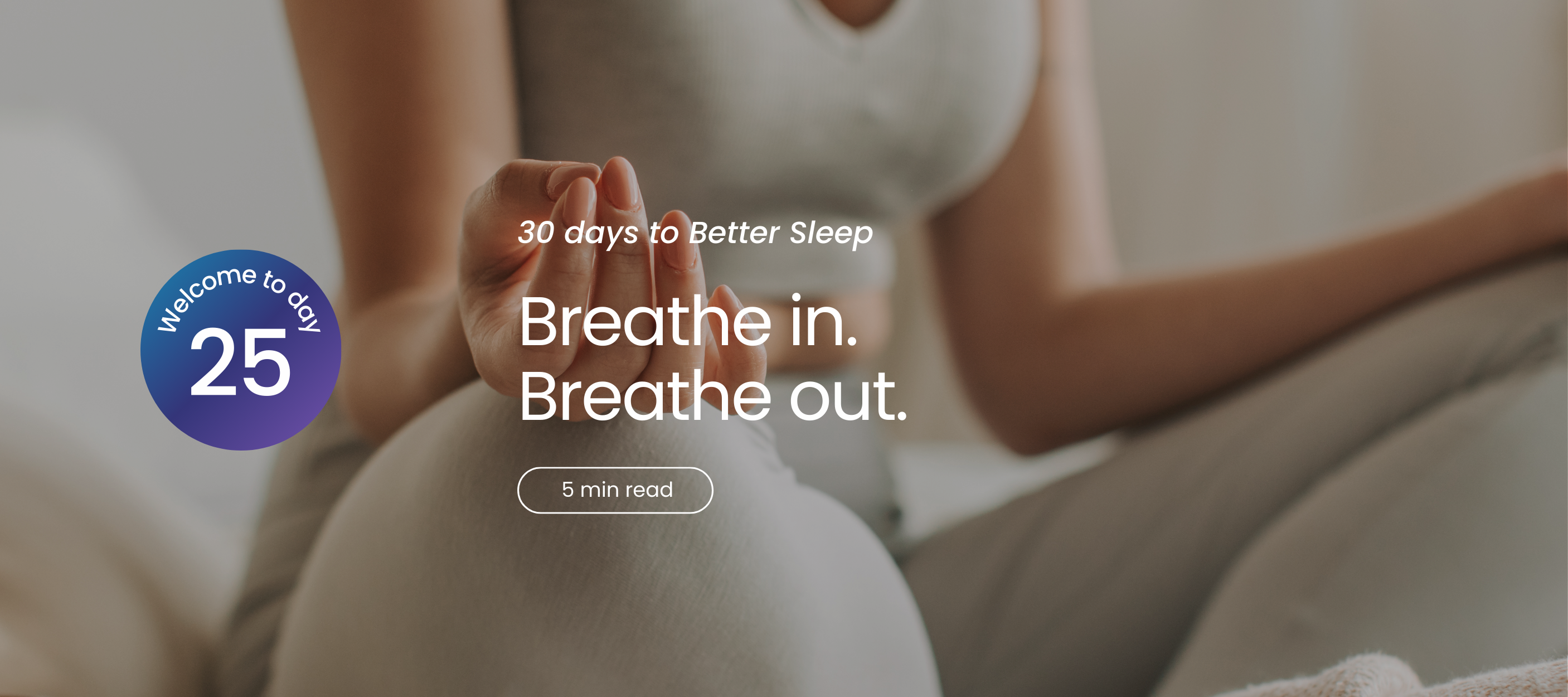
Deep Breathing: Belly breathing calms stress and improves sleep.
Nighttime Health: Poor breathing, like sleep apnea, harms sleep; consider testing if needed.
Action: Practice guided breathing and assess sleep health.
Mastering proper breathing techniques can have a powerful impact on your ability to relax, fall asleep more easily, and enjoy deeper, more restorative sleep. Often overlooked, the way we breathe—especially at night—plays a key role in calming the nervous system and signaling to the body that it’s time to rest. Diaphragmatic breathing, or breathing deeply through the belly rather than the chest, activates the body’s natural relaxation response, helping to reduce stress, lower your heart rate, and ease the mind.
Sleep-disrupting breathing patterns are more common than many realize. Conditions like shallow breathing or sleep apnea can prevent your body from fully entering restorative sleep, leading to grogginess and fatigue the next day. By practicing intentional breathing during the day and becoming more aware of how you breathe at night, you can begin to reset these patterns and support healthier, more effective rest.
In today’s content, we’ll explore how breathwork can enhance your relaxation routine and how MDsleep can support deeper, more consistent sleep.
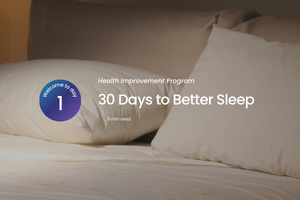
Deep Breathing: Belly breathing calms stress and improves sleep.
Nighttime Health: Poor breathing, like sleep apnea, harms sleep; consider testing if needed.
Action: Practice guided breathing and assess sleep health.
Mastering proper breathing techniques can significantly improve your ability to relax and achieve a deeper, healthier sleep. Breathing deeply with your diaphragm instead of your chest activates the relaxation response, reducing stress and promoting better rest. Poor breathing during sleep is a common issue, with conditions like sleep apnea affecting millions. By practicing diaphragmatic breathing and evaluating your nighttime breathing habits, you can take important steps toward improving your sleep quality.

Deep breathing is a simple yet powerful tool to calm the mind and body. Unlike shallow chest breathing, which triggers the stress response, diaphragmatic breathing encourages relaxation by increasing oxygen flow to the blood. Here’s how to practice it:
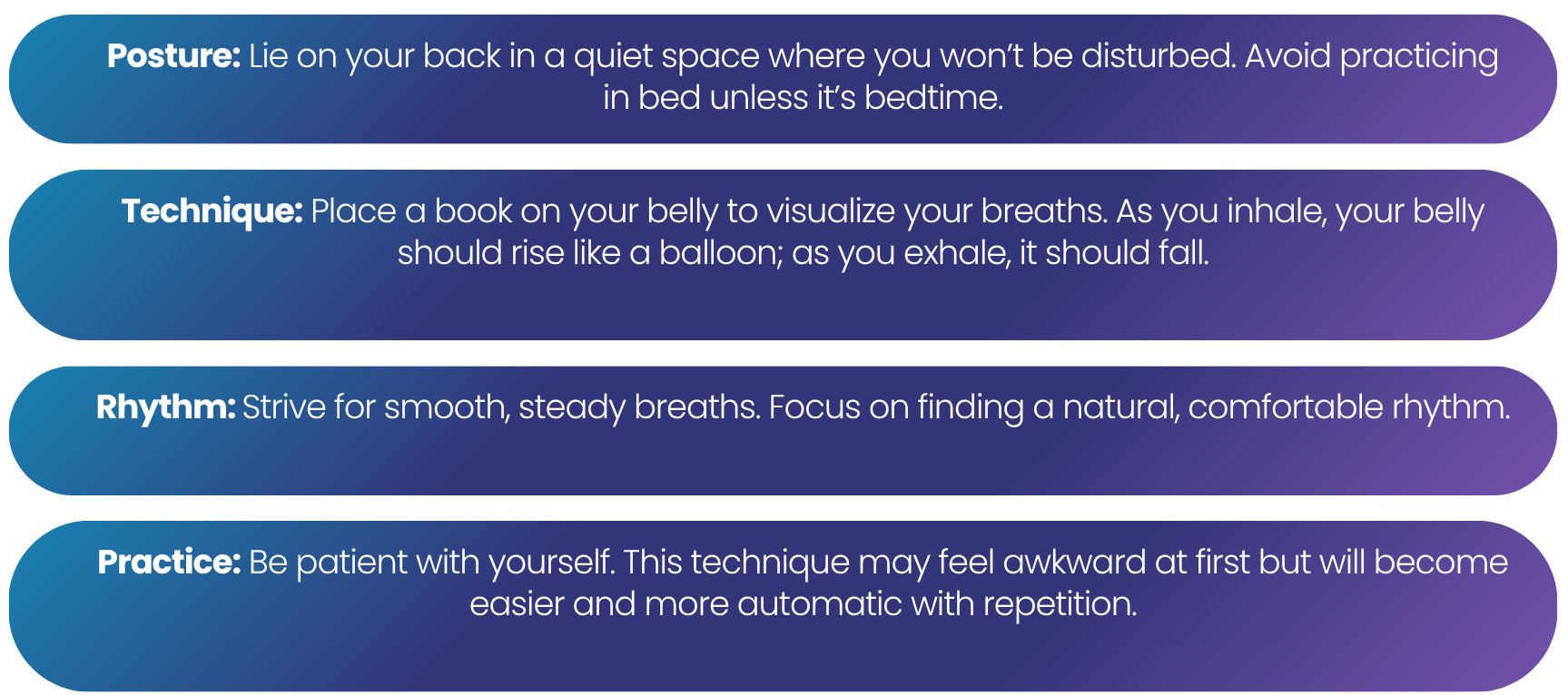
Once you’re comfortable with this method, try the guided diaphragmatic breathing exercise available in the SleepSpace app.
Deep breathing is a simple yet powerful tool to calm the mind and body. Unlike shallow chest breathing, which triggers the stress response, diaphragmatic breathing encourages relaxation by increasing oxygen flow to the blood. Here’s how to practice it:
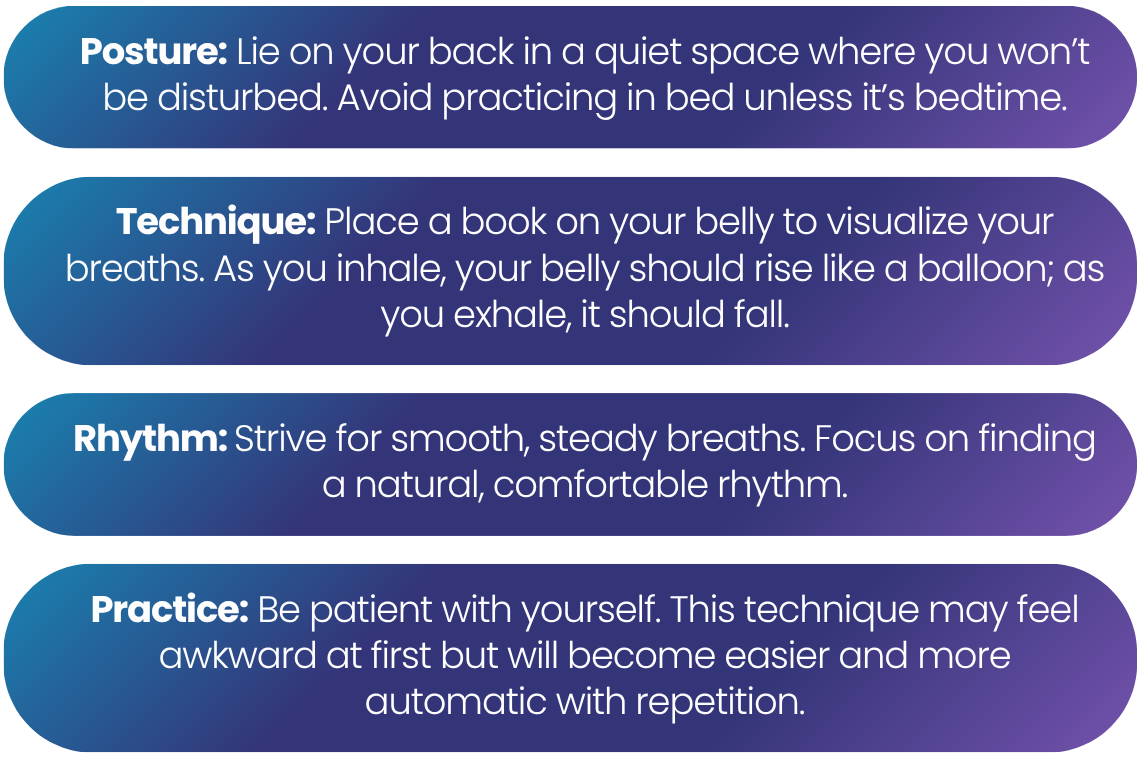
Once you’re comfortable with this method, try the guided diaphragmatic breathing exercise available in the SleepSpace app.
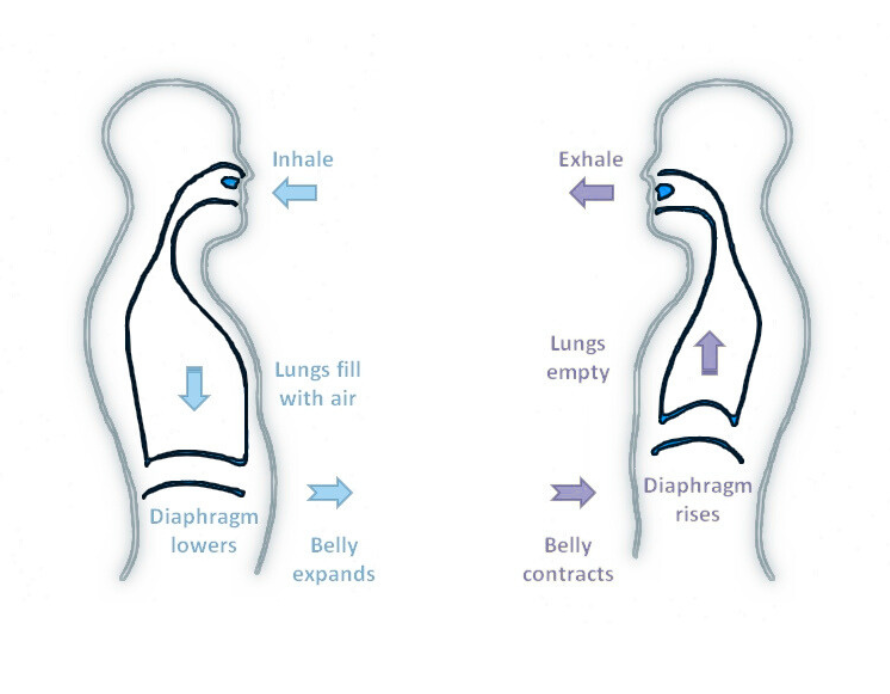
The Professional Massage Academy. (2023, April 17). What is Diaphragmatic Breathing and Why Should I Do It? The Professional Massage Academy. Retrieved December 20, 2024, from https://theprofessionalmassageacademy.com/2023/04/17/what-is-diaphragmatic-breathing-and-why-should-i-do-it/.

The Professional Massage Academy. (2023, April 17). What is Diaphragmatic Breathing and Why Should I Do It? The Professional Massage Academy. Retrieved December 20, 2024, from https://theprofessionalmassageacademy.com/2023/04/17/what-is-diaphragmatic-breathing-and-why-should-i-do-it/.
Proper breathing while you sleep is essential for achieving restorative sleep. Unfortunately, many adults struggle with nighttime breathing issues:
Sleep Apnea: About 10% of U.S. adults have sleep apnea, while over 50% may experience suboptimal breathing patterns at night.
Health Impacts: Poor breathing can disrupt sleep cycles, leading to fatigue and other health concerns.
If you suspect you have a nighttime breathing issue, consider taking an FDA-approved at-home sleep test to evaluate your condition.

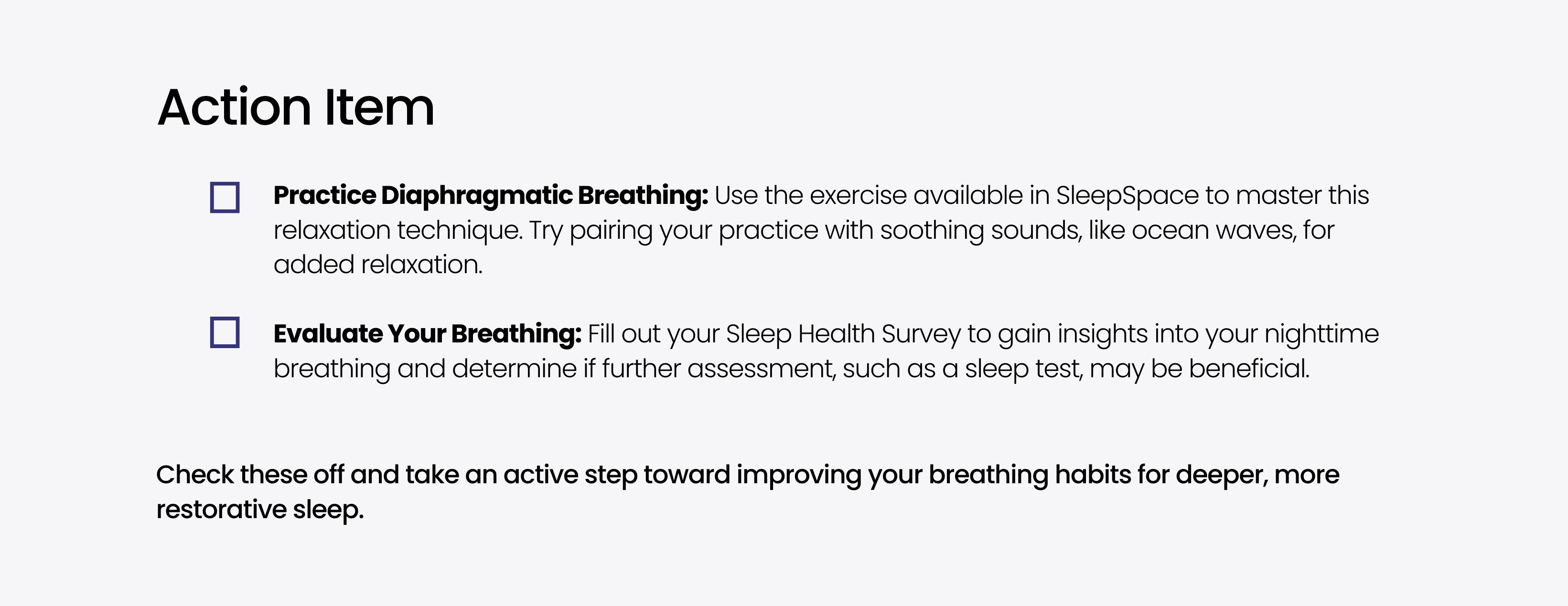
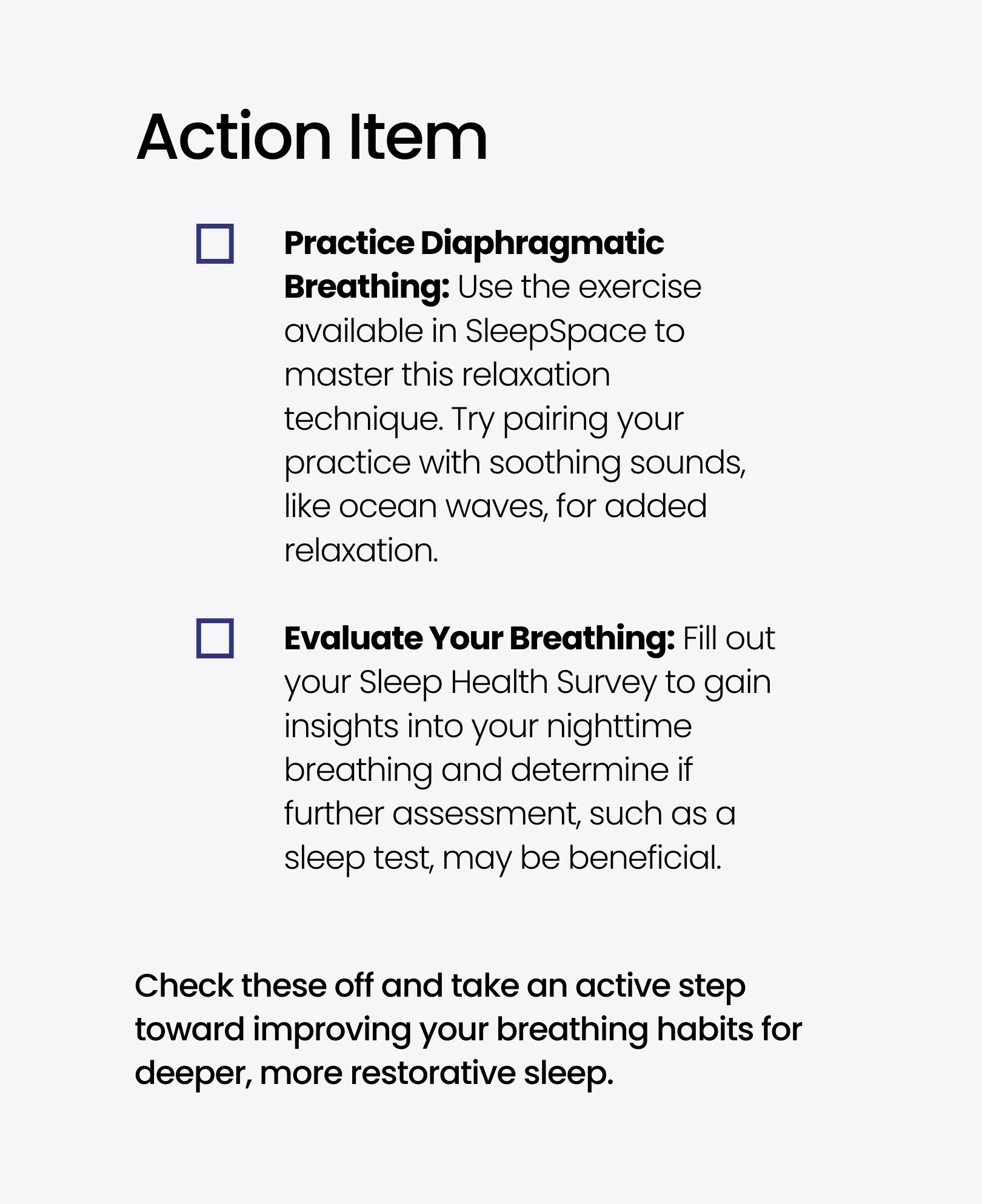
THE DOCTORS BRAND™
America’s leading clinically proven nutraceutical brand for better sleep, less anxiety and less pain
*These statements have not been evaluated by the U.S. Food and Drug Administration. Our product is not intended to cure or treat any disease.
MDbiowellness
Contact us
(805) 977-5709
M-F 9am-5pm PT
hello@MDbiowellness.com
© 2023 MDbiowellness